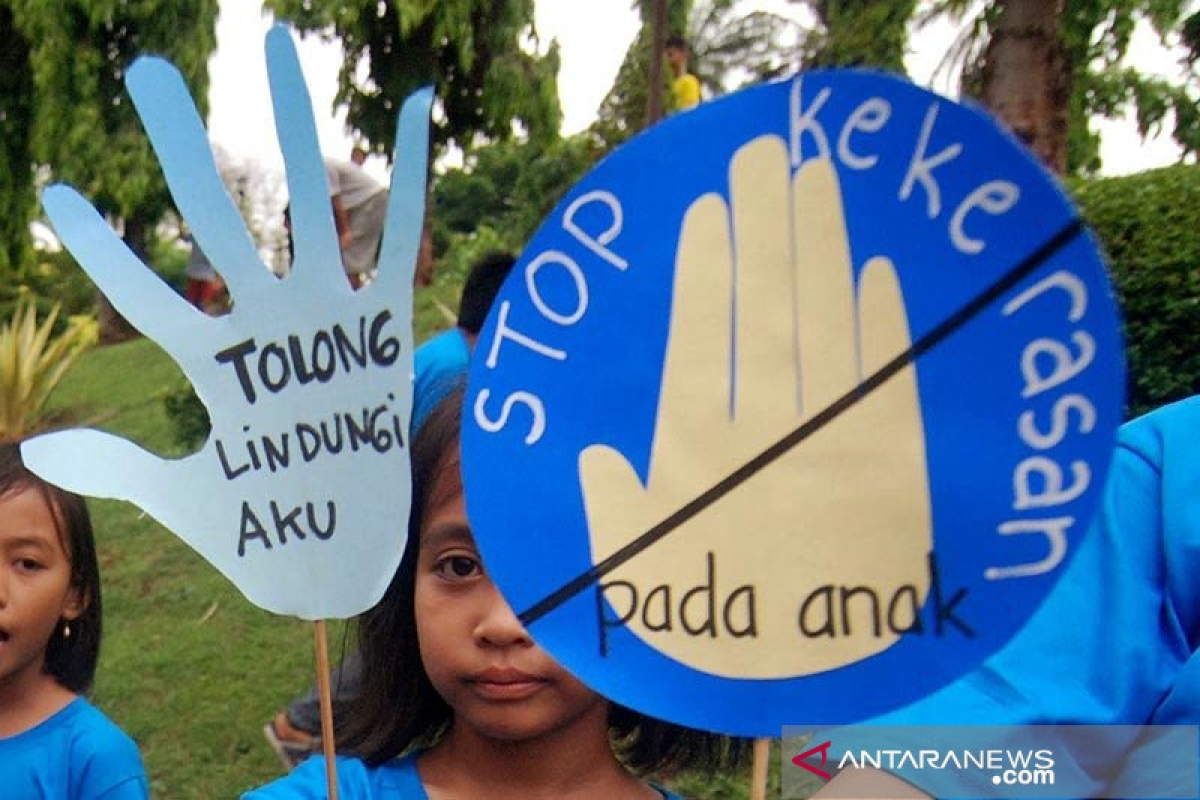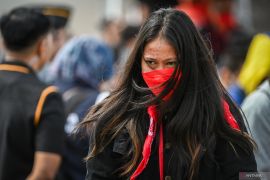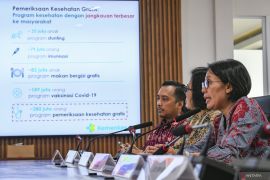The president has urged the RUU TPKS special task force to prepare the problem inventory list (DIM) for the bill draft that the DPR is readying.
The president urged the discussion process to be conducted at a more quicker pace whilst addressing the main contents that offer legal certainty and protection to victims of sexual violence in a bid to offer them maximum protection.
The initial draft of the RUU TPKS contains 11 chapters comprising 40 articles. Chapter I contains General Provisions, and the issue of sexual violence is regulated in Chapter II.
Four forms of sexual violence are regulated in the latest draft of the bill: sexual harassment (physical and non-physical), forced contraception, forced sexual intercourse, and sexual exploitation.
Furthermore, the task force quickly responded to the president’s directive to accelerate the formation of the RUU TPKS.
The bill’s problem inventory list (DIM) was completed not long after the president had issued his directive.
Deputy V of the Presidential Staff Office (KSP) Jaleswari Pramodhawardani conveyed that the government had two months to prepare the DIM starting from January 26, 2022, after receiving the bill and the research paper from the DPR. However, on February 12, 2022, the bill’s DIM was already completed.
Pramodhawardani attributed the prompt completion of the DIM to the collaboration of several parties.
Related news: RUU TPKS: KSP lauds collaboration on problem inventory list
The government has completed a total of 588 DIM items summarized in 12 chapters and 81 articles and have been signed for approval by the women’s empowerment and child protection minister, social affairs minister, law and human rights minister, and home affairs minister.
Pramodhawardhani noted that for preparing the DIM, the RUU TPKS task force, formed in April 2021, held at least six coordination meetings with civil society and academia, ministries and agencies, the Supreme Court, the Legislative Body of the DPR and others, to help accelerate the process.
Deputy Minister of Law and Human Rights, concurrently chair of the RUU TPKS Task Force, Edward O. S. Hiariej, stated that the government was seeking to make various improvements to the RUU TPKS drafted by the DPR, such as breakthroughs related to the regulation of criminal provisions that now cover seven types of sexual violence to the procedural law.
According to the government, the RUU TPKS will fulfil aspects of victim protection and recovery.
Related news: Problem inventory list for sexual violence bill completed: minister
The Journey of the Sexual Violence Bill
The discussion on the sexual violence bill indeed took a long time. Initially, the bill was named “RUU PKS”.
However, on September 7, 2021, Chair of the Working Committee on the RUU PKS, Willy Aditya, announced that the RUU PKS would henceforth be known as the RUU TPKS, with the status of an initial draft.
Aditya explained that in the RUU TPKS, there were several editorial and material changes as part of the dialectic that occurred, so that the bill's discussion continued to progress.
He admitted that the bill’s new name and material had drawn criticism from several groups. However, he believed that criticism in fact indicated that the bill had made significant progress and that dialogue was taking place during its discussion.
Despite the pros and cons, he said the most important aspect is that the RUU TPKS aims to realize the provision of a legal umbrella for sexual violence victims both in terms of protection and recovery.
He affirmed that the drafting of the RUU TPKS would not overlap with various existing rules, so the rules that have been regulated in other laws would not be discussed in the RUU TPKS.
On January 18, 2021, the House of Representatives finally approved the RUU TPKS as a DPR initiative bill.
This approval was taken after the nine factions of the DPR expressed their respective views at the DPR Plenary Meeting at the Nusantara II Building, Senayan, Jakarta.
Related news: KSP seeks inputs from community for sexual violence bill
Of the nine factions, only the Prosperous Justice Party (PKS) faction firmly rejected the RUU TPKS as a DPR initiative bill.
Spokesperson of the PKS faction Kurniasih Mufdiyati asserted that her faction had rejected the bill not because they do not support protection for victims but because the RUU TPKS does not comprehensively include all crimes related to morality, such as sexual violence, fornication, and sexual deviations, which according to her faction is essential in preventing and protecting people from sexual violence.
Sexual Violence in Indonesia
Earlier, the National Commission on Violence against Women (Komnas Perempuan) revealed that the commission had received 4,500 reports of violence against women during the January-October 2021 period. The figure shows that the number of reports had doubled as compared to those in 2020.
Komnas Perempuan stressed that the state of emergency arising due to sexual violence in Indonesia is not only about the increasing number of such cases as well as the complexity and extremity but also the inadequate handling capacity in all regions.
According to the Ministry of Women’s Empowerment and Child Protection data, cases of violence against children had reached 11,057 in 2019, 11,279 in 2020, and 12,566 as of November 2021.
The most common form of violence experienced by children was sexual violence, at 45 percent; psychological violence, 19 percent; and physical violence, 18 percent.
Related news: Sexual violence bill to regulate handling of digital abuse
Meanwhile, cases of violence against women also registered an increase. In the last three years, 26,200 cases of violence against women were reported in the country, as per data.
In 2019, some 8,800 cases of violence against women were reported, while in 2020, the number fell to 8,600 cases, it noted.
From January to November 2021, some 8,800 cases of violence against women were reported in the country, it stated.
Women mostly experienced physical violence, at 39 percent; psychological violence, 29.8 percent; and sexual violence, 11.33 percent.
Despite the government and the DPR having demonstrated solid commitment to the discussion and completion of the RUU TPKS, people must continue to monitor the bill, so that it can serve as a legal umbrella that protects victims of sexual violence.
Related news: Expediting RUU TPKS necessitates collaboration from all parties: MPR
Related news: Ministry affirms continued support for sexual violence prevention bill
Editor: Fardah Assegaf
Copyright © ANTARA 2022












